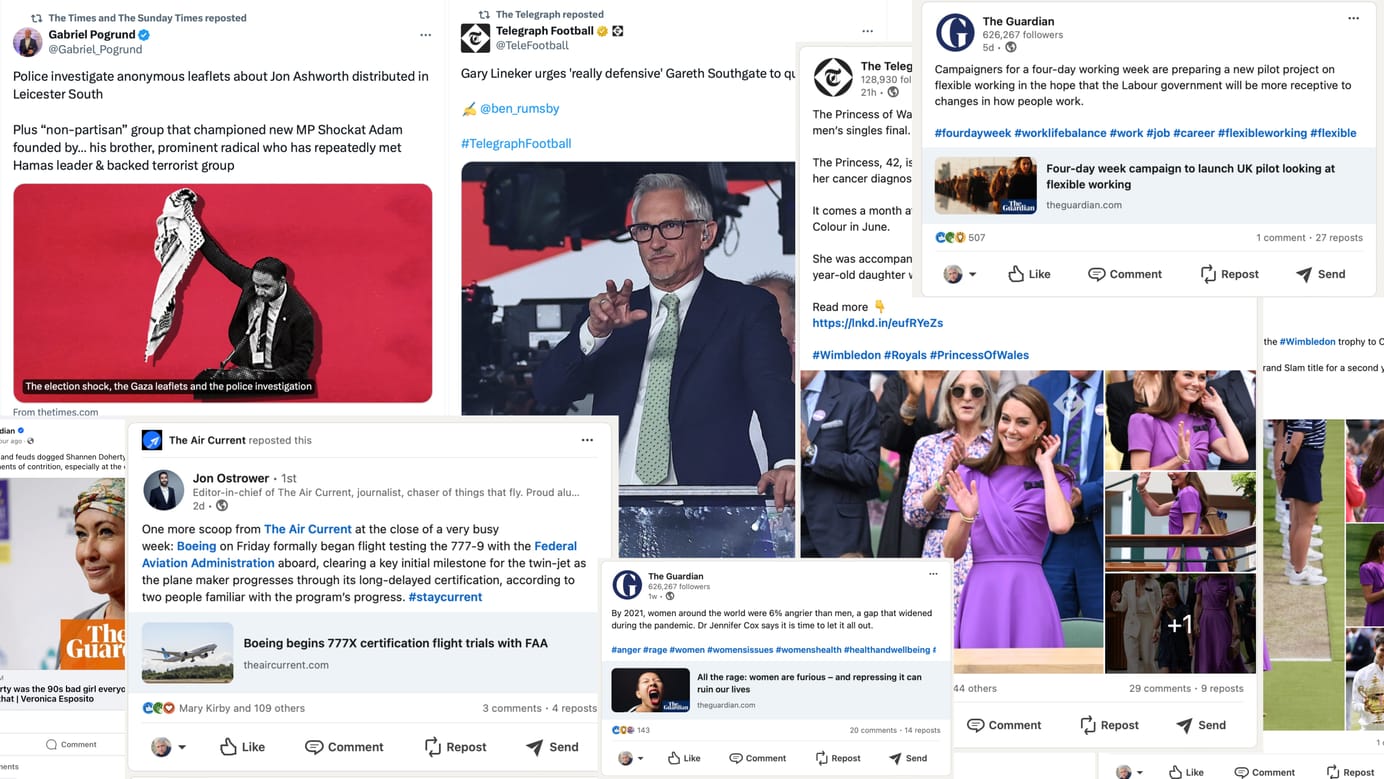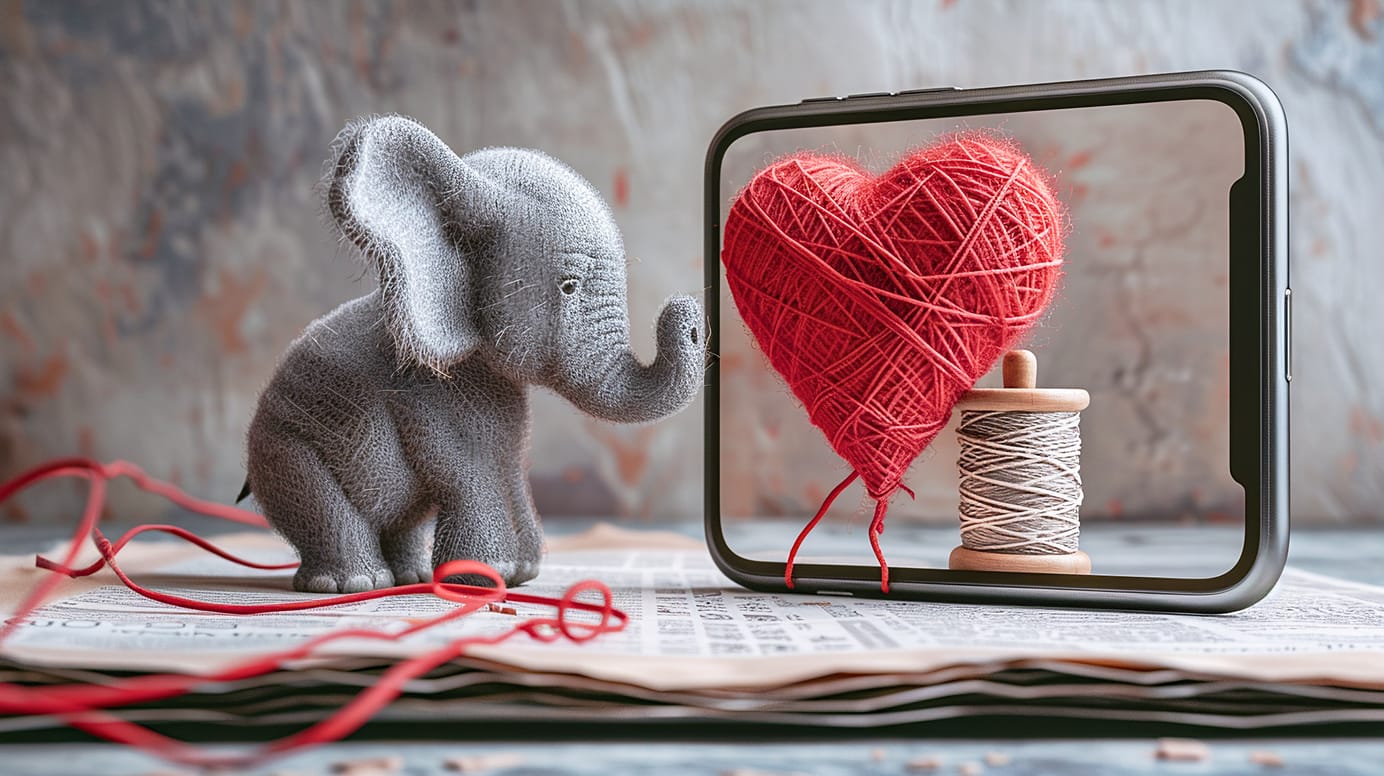
The Media Inflection Point: a manifesto for audience centricity
The doomsayers are out in force. Journalism is dead, they say. Just look at the job losses, the titles closing. But we’re just paying the price of bungling the last digital transition. Let’s not repeat that mistake with the coming one.
We’re at an inflection point. Things are changing profoundly in the online world, and with change comes opportunity. That change is now inevitable. Tectonic shifts are happing in the power of the social media platforms. AI is likely to entirely change how we think about “content” as much as the advent of the web did. These technologies aren’t going back into the box, and we have to surf the wave of change they bring with them.
Let’s be honest, though. Our record is not good here. We bungled the last big paradigm shift in digital. When mobile and social rose together in the late 2000s and early 2010s, we abandoned the early experiments in building community online ourselves, and we handed it over to the rising gatekeepers: the social platforms. We let them — and Google — come between us and our readers.
That was great — while the traffic was flowing and the living was easy. But once those gatekeepers turned the traffic spigot off, it hurt. And for some publications, the hurt was terminal. Like fish, all we could see was the bait of the tasty wriggling worm of traffic, and not the hook of platform dependency that came with it.
Why podcasting got it right
A decade on, we can see clearly that it was a mistake to hand so much power to Google, to Facebook, to Twitter. And those of us who were saying “this is a mistake” a decade ago can feel a mix of smugness that we were right, and shame that we weren’t able to make our case more persuasively.
To hammer the lesson home, have a look at podcasting. It has been busy in the background, persuasively making the case for us. It never let itself get locked up by a single gatekeeper. That’s partially the result of a bit of luck. Apple took the early lead in podcasting, but showed little desire to become a gatekeeper. And other would-be controllers of the medium, like Spotify, have failed to snap the lock shut.
As Anil Dash put it:
But here's the thing: being able to say, "wherever you get your podcasts" is a radical statement. Because what it represents is the triumph of exactly the kind of technology that's supposed to be impossible: open, empowering tech that's not owned by any one company, that can't be controlled by any one company, and that allows people to have ownership over their work and their relationship with their audience.
Audience is our job, not the platforms
All this talk of “gatekeepers” and “platforms” disguises the brutal truth: we let other companies come between us and our audience. We can’t afford to make that mistake again. That’s why I offer newsletter subscription and RSS feeds here. That’s direct communication between you and me. No company, no platform, owns that relationship. It’s between the two of us, and it can only be severed by us. No company has the power to do it.
Tidal waves of change are sweeping towards the old gatekeepers. Google is staring down the barrel of a torrent of shitty AI-generated content, hollowing out the heart of its advertising-driven business model. It’s scared of OpenAI and ChatGPT stealing its search business, but has yet to show that its own generative AI experience is capable of producing anything like the ad revenue it’s used to.
The existing social platforms are stumbling. Facebook is declining, Twitter is a hot mess thanks to Elon Musk’s completely inexperience with social media at a mass level, and TikTok is haunted by the ghost of its Chinese ownership. And the sudden silencing of untold old videos shows how many vulnerabilities there are in its business model.
A glimmer of open standards hope
And, amongst the chaos, there are tiny signs of hope. Two of the would-be Twitter killers are built on open standards:
- Mastodon is built on ActivityPub
- Bluesky, newly open to all, is built on ATProtocol
What those standards are and how they operate doesn’t matter to most of us. It just means that these platforms, like podcasting, and like email, can’t easily be locked up by one company. And, fascinatingly, Meta has a clear roadmap for its Twitter challenger, Threads, to integrate ActivityPub. Yes, it’s going to join in with Mastodon.
Now, I doubt that this is through a sudden Damascene conversion to open standards at Meta HQ. They’re just seeing Apple starting to get a regulatory kicking for locking everything down too much, and are realising they’ll be next if they don’t change their ways. Whatever the reason, open is coming back, for the first time in 15 years.
Navigating the stormy seas of digital
- Search is changing.
- Social is changing.
- Video is changing.
A reset opens the potential for us to reshape our relationships with our audiences again. As the old platforms stumble, we need to find ways of connecting with them directly, before new gatekeepers can interpose themselves. If we have direct relationships with our readers, the threat of AI answering questions fades, as people come to us first. I’ve worked with publications where their readers come straight to the publication's search page in preference to Google because they trust that they’ll get the specific information they need there.
More of us need to be like that. This is not a short, one-off campaign. This is about a long-term commitment to reshaping what we do around what our readers actually value and need. And in forging connections with those readers that aren’t dependent on other companies.
That fact that audience work — and audience teams — are seen as new, emerging areas of work tells us everything we need to know about the mistakes of the last two decades. We’re only now taking audiences seriously, rather than platforms? Who is our customer again?
Sailing by the audience North Star
Yes, there will be new threats, and new opportunities on this voyage. New social platforms means new social creators, means more competition for attention for us. But they also mean new ways of connecting with our audiences — and this time we may be able to own those relationships. Or, at least, always develop relationships on platforms with an eye to coaxing them towards an unmediated one.
AI will be a threat, an opportunity and (for some publishers) a trap. But if we give up on human creativity, we lose all hope of forging an emotional connection between creator and audience. Even is AI content proves cheaper, that’s a terrible Faustian bargain to make, and one we will regret as dearly as the platform addiction of the 2010s.
It’s time to reset the sails, catch the wind in the sails, and see where the future takes us. Yes, the seas will be stormy. And yes, some publications will sink on unexpected rocks. But when hasn’t that been the case in the quarter-century of digital change?
As long as we keep sailing towards our audience, as long as we keep their needs our focus as we navigate the tempest of technological change, the industry will survive. Nobody can guarantee that any particular title will survive. Or business model. Or even job role.
But somewhere between the sweet siren call of the platform trap, and the luddite despair of the doomsayers, there is a safe passage. Or, at least, there will be if this thing we call “journalism” has any inherent value.
And I believe it does.
Do you?
Sign up for e-mail updates
Join the newsletter to receive the latest posts in your inbox.










